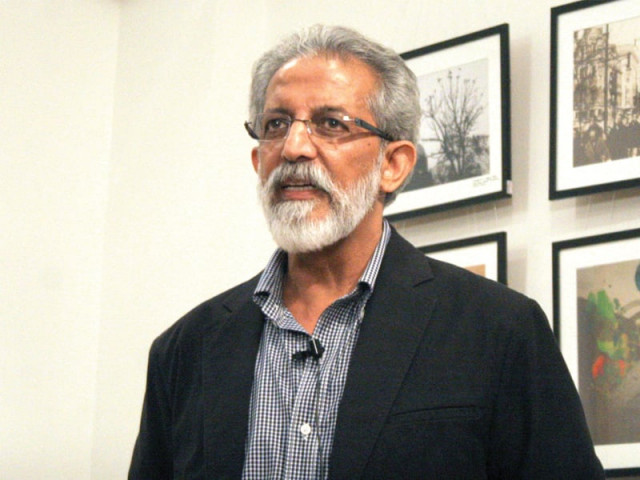Book tries to explain why Pakistan and India are so different today
Dr Tariq Amin-Khan’s work looks at some of the unexplored factors in history.

India is considered one of the world’s largest democracies where capitalism thrives. Pakistan, however, is thought to be the diametrical opposite, where feudal landholders and bureaucratic elite have a strong grip on state power. Dr Amin-Khan, who is an associate professor at the politics and public administration department of Ryerson University, Toronto, tries to explain this by shedding light on elusive factors which prevailed during the end of the British Raj. Routledge published the book internationally in December 2011 under the title ‘The Post-Colonial State in the Era of Capitalist Globalization’. It has now been published in Pakistan by Vanguard Books. The 249-page book costs Rs995.
A book launch was held on Thursday evening at The Second Floor (T2F) in which Dr Amin-Khan shared some of the findings of his meticulous research with the audience. “The process of state formation in the post-colonial era is different from the formation of the Western capitalist states,” Dr Amin-Khan told The Express Tribune. In an attempt to explain the difference, Dr Amin-Khan took up India and Pakistan as a case study for his PhD thesis, which after three reviews, eventually culminated in this book. The event started with a candid review by Masood Ali Naqvi, a member of the Institute of Chartered Accountants of Pakistan. He said that at first glance, the book did not interest him much but once he started reading, he had great difficulty in putting it down.
“Amin-Khan’s work is based on hardcore research and a layman might find it difficult to read on the first go,” he said. “But once you get into it, you can’t help but to find it thoroughly interesting.”
Naqvi presented the crux of Dr Amin-Khan’s thesis by saying most post-colonial states remained dependant on the socioeconomic and political structures that the governing imperialist regimes had created. What determined the particular trajectory of a country, however, was which section of the indigenous society had gained power after decolonisation. “The majority of post-colonial states, either because of dependency or the mindset of ruling classes failed to develop an autonomous political and social framework.”
Naqvi added that following independence, India stepped into a state-directed development process via industrialisation, ideology of self-reliance and an independent foreign policy. “The focus on the non-aligned state policy from day one had helped India to stay in the path of progress,” said Naqvi.
Lateef Chaudhry, National Students Federation’s former president, also spoke at the event, declaring the book a “good addition in political literature” on the subcontinent. “Only politically conscious youth can bring a change in society and for that, I urge them to read all sorts of literature.”
Published in The Express Tribune, November 3rd, 2012.



















COMMENTS
Comments are moderated and generally will be posted if they are on-topic and not abusive.
For more information, please see our Comments FAQ